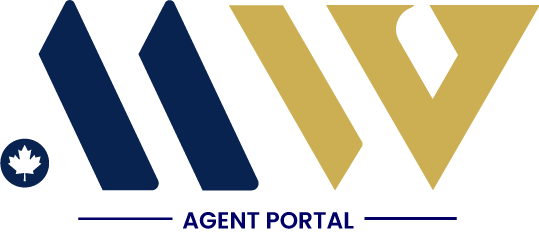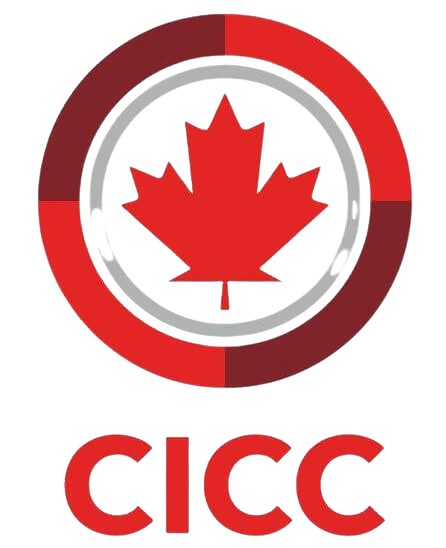British Columbia Institute of Technology
British Columbia Institute of Technology (BCIT) is a public post-secondary institute recognized for its advanced technical education. The main campus is in Burnaby, British Columbia and has four other campuses: Aerospace Technology Campus, Marine Campus, Annacis Island Campus, Downtown Vancouver campus.
BCIT has around 50,000 students with about 5,700 are international students from over 100 countries. Did you know? British Columbia Institute of Technology was the first in the region to offer a combined honours program of Biochemistry and Forensic Science.
Where is the British Columbia Institute of Technology?
The technical institute has five campuses located in the Metro Vancouver region, with its main campus in Burnaby, British Columbia, Canada.
Address: 3700 Willingdon Ave, Burnaby, BC V5G 3H2, Canada.
Tel: +1 604-434-5734.
Why Study at the British Columbia Institute of Technology?
 The British Columbia Institute of Technology Campus is beautifully landscaped over a large area with hundreds of specialized learning spaces, including classrooms, shops, labs, broadcast studios, green roofs, energy grids, forests, and waterways.
The British Columbia Institute of Technology Campus is beautifully landscaped over a large area with hundreds of specialized learning spaces, including classrooms, shops, labs, broadcast studios, green roofs, energy grids, forests, and waterways.
BCIT also has some incredibly advanced amenities and technology such as the ehPod computer labs, Trade Learning Centres and the Media Works. You’ll have free wi-fi and a great study area that ensures a comfortable learning space for the students.
The university provides on-campus and off-campus accommodation with basic amenities provided, including two floors of bedrooms, bathrooms, a dining room, a living room, and two full kitchen areas for students to prepare their own meals.
Things to do around BCIT:
- Deer Lake Park;
- Burnaby Mountain Park;
- Barnet Marine Park; and
- Burnaby Village Museum.
Top Programs at the British Columbia Institute of Technology
 British Columbia Institute of Technology offers over 300 programs and 1,000 part-time courses within six fields. They are:
British Columbia Institute of Technology offers over 300 programs and 1,000 part-time courses within six fields. They are:
- Applied and Natural Science;
- Business and Media;
- Computing and Information Technology;
- Engineering;
- Health Sciences; and
- Trades and Apprenticeship.
| Top Courses for British Columbia Institute of Technology | |
|---|---|
| Programs | Fees Per Year (CAD) |
| Computer Information technology Diploma | $36,738 |
| Bachelor of Business Administration | $14,356 |
| Bachelor of Technology in Computer Systems | $21,697 |
| Bachelor of Engineering (Civil Engineering) | $17,730 |
| Diploma (Mechatronics and robotics) | $18,370 |
| Diploma in Television and Video Production | $19,000 |
Please note the amount in the table is an average and not the exact amount.
Online Courses
BCIT offers distance and online courses. Most online courses are paced and highly interactive with participation requirements weekly. The online classes also offer the same credit value as the classroom-based courses.
Advantages of online courses:
- Overall, 70% of BCIT distance and online learning students register in courses to upgrade current job-related skills.;
- Distance learning reduces travel time and creates flexible schedules; and
- Distance and online learning have proven benefits for organized groups of students from industry.
The following online learning courses offered are:
- Power Engineering;
- Broadcast and Online Journalism;
- Accounting;
- Medical and Mineral resource Engineering;
- Interior design
- Architectural and Building Technology; and
- Business Management
British Columbia Institute of Technology Admission Process
 As an international student, you will need the following to apply at BCIT:
As an international student, you will need the following to apply at BCIT:
Application Portal: Applicants can apply through an online portal.
Application Fee: $154.
Requirements:
- High school equivalent to Grade 12 in Canada;
- Work experience of 6 months in the relevant field for degree courses;
- 2 years of full-time education in English from English speaking nation/completed English 12 or equivalent; and
- Previous credentials are required to be formally evaluated by the International Credential Evaluation Service to determine comparable levels in British Columbia and Canadian terms.
Supporting Documents:
- Official Transcripts and Academic records;
- English language proficiency test scores;
- Statement of Purpose to study in Canada; and
- Proof of Status in Canada.
Yearly Tuition Range
| British Columbia Institute of Technology Cost of Attendance | |
|---|---|
| Course | Fees in CAD |
| Full-time Cohort Degree and Graduate Study Program | $5,410 – 11,290 |
| Full Time/Cohort Technology Fee | $7,656 – 11,290 |
| High Tech Professional and Digital Arts Program | $4,908-16,801 |
| Trades and Technical Studies | $5,786-15,546 |
Please note the amount in the table is an average and not the exact amount
Life at the British Columbia Institute of Technology
 The BCIT Recreation Services is there to promote, encourage and enable the practice of physical well-being. The institution considers recreation as an important part of campus life.
The BCIT Recreation Services is there to promote, encourage and enable the practice of physical well-being. The institution considers recreation as an important part of campus life.
A few activities to take part of include:
- dance classes;
- yoga;
- pilates; and
- martial arts.
If you’re active and would like to take part in sports activities there are so many options to choose from. You could try archery, boxing, tennis or even frisbee golf.
For indoor activities, you can choose from ping-pong and squash.
How We Can Help You?
mwagents.ca works alongside Regulated Canadian Immigration Consultants (RCICs) who can assist you with getting a study permit that allows international students to study in Canada. Not only will you have the expert advice of an RCIC but you’ll also have your own personal student advisor who can help you complete your college submission and motivational letter.
Immigration FAQ’s
Your Comprehensive Ranking System (CRS) is based on the following factors:
- Provincial Nomination;
- Offer of employment;
- Core capital factors;
- Your common-law partner or spouse;
- Skill transferability;
- Previous Canadian study experience;
- Siblings in Canada; and
- French and English Ability
Provincial Nomination (600 Points)
600 points are awarded for an enhanced Nominee certificate from a province in Canada through the Provincial Nominee Program (PNP).
Job Offers (50-600 Points)
A Canadian job offer will also earn you points; the number of points is based on the NOC level of the particular job.
Core Human Capital Factors (600 Points)
These take into account your level of education, for example:
- Certificate;
- Diploma; or
- Degree
If you intend to gain higher qualifications, your score will increase. This same point system applies to your legal partner or spouse if you applied together.
Language (150 Points)
Improving your language skills in either English or French through a recognized Canadian institution can also raise your CRS score.
Work Experience
The more experience you have, the more points you earn. This also applies to your legal partner or spouse.
You must:
- Meet all the requirements of the:
- Federal Skilled Worker Class (FSWC);
- Federal Skilled Trades Class; or
- Canadian Experience Class
You must register with the Canadian Job Bank within 30 days unless:
- You have arranged employment from a Canadian employer; or
- You have received a nomination through the Provincial Nominee Program
You must have a Labour Market Impact Assessment in order to earn Comprehensive Ranking System points, unless you:
- Have worked full time for an employer with a work permit for a least one year (or a part-time job for an equal amount of time);
- Have a valid job offer from a Canadian employer that is for at least one year in duration; or
- Have a valid employer specific temporary work permit exempt under code R204 (a), (c) or R205
If you qualify for any of the Federal Programs, you have 30 days from when you submit your profile to complete the rest of the requirements like registering with the Job Bank. If you do not, your Express Entry profile cannot be activated.
There are three programs to apply for under Express Entry:
- Skilled Federal Worker Program (SFWP);
- Skilled Federal Trades Program (SFTP); or
- Canadian Experience Class (CEC)
The following factors affect your eligibility:
Work Experience
You must:
- Have gained relevant work experience for a job listed in the National Occupation Classification (NOC). Note: Work experience gained in another occupation you have not applied for does not apply;
- Have gained work experience in the past 10 years;
- Have received payment for your work;
- Have a job at skill level 0, A or B;
- Have a year’s worth of work experience (minimum 1,560 hours); and
- Prove that your work experience fits the requirements of the NOC
Language Ability
You must:
- Meet the minimum language level set by the Canadian Language Benchmark (CLB);
- Take a language proficiency test That is approved by IRCC;
- You must meet the language requirements for either French or English; and
- Your language test results must not be more than two years old when you apply
Education
You must:
- Have completed canadian secondary education; and a tertiary certificate, diploma or degree;
- Have completed foreign credentials; or
- Have an Educational Credential Assessment (ECA) approved by IRCC
Proof of Funds
You must prove you can support yourself and your family financially, unless:
- You are working in Canada; or
- You have a valid job offer from a Canadian employer
Additional Factors to Be Considered
- Age;
- Valid job offers; and
- Adaptability
This program is aimed at people who wish to become permanent residents (PR) of Canada. This only applies to people who qualify in a skilled trade.
Minimum Requirements
You must:
- Plan to live outside of Quebec (The province has its own Quebec Skilled Worker Program);
- Meet the language requirements for English and French;
- Have two years’ work experience in a skilled trade (or equal amount of experience in a part time position;
- Have work experience within the past 5 years;
- Meet the job requirements in the National Occupational Classifications;
- Have a full-time job offer from a Canadian employer for a minimum of one year; or
- A certificate of qualification for that skilled trade that is confirmed from the Canadian provincial or territorial government authority
Skilled Work Experience
These skilled trades are involved in the Federal Skilled Trades Program as ranked by the National Occupational Classification.
| Group Number | Job Description |
|---|---|
| 72 | Industrial, construction or electrical trades |
| 73 | Equipment operation and maintenance |
| 82 | Technical and supervisors in:
|
| 92 | Processing, manufacturing and utilities supervisor Central control operators |
| 632 | Cooks and chefs |
| 633 | Bakers and butchers |
Education
You do not need a specific qualification for this program, but you can earn more CRS points if you have:
- Foreign qualifications;
- An Educational Credential Assessment (ECA) approved by IRCC;or
- A Canadian certificate, diploma or degree
Language Ability
- Pass the Canadian Language Benchmark test at minimum language level;
- The language test must be approved by IRCC; and
- Your test results must not be older than two years when you apply.
Be assessed by the province or territory
Each of the provinces or territories have different requirements for the skilled trade industry.
Minimum Requirements
Minimum Requirements
You must:
- Have skilled work experience for at least 12 months (either full time or part time for the same amount of time) within three years before you apply;
- Have the required language skills needed for your job;
- Have gained experience in Canada with proper authorization;
- Have the language proficiency needed for your job; and
- Have plans to live outside of Quebec
Skilled Work Experience
Work experience must be gained in the following job levels based on the National Occupational Classifications.
| Job Description | Skill Type |
|---|---|
| Technical jobs | B |
| Skilled trades | B |
| Professional jobs | A |
| Managerial jobs | 0 |
Education
You do not need an education to apply for this program, but you can score higher if you:
- Have a high school diploma, tertiary diploma or degree;
- Have an Educational Credential Assessment (ECA) approved by IRCC; or
- Have completed foreign credentials
Language Ability
To qualify you must score well in the various language tests determined by the CEC.
| Canadian Language Benchmark Score Needed | Job Level (NOC) |
|---|---|
| 7 | 0 |
| 7 | A |
| 5 | B |
The language test must be approved by IRCC and must not be older than two years when you apply.
- Have skilled work experience for at least 12 months (either full time or part time for the same amount of time) within three years before you apply;
- Have the required language skills needed for your job;
- Have gained experience in Canada with proper authorization;
- Have language levels need for your job; and
- Have plans to live outside of Quebec
Note:work experience gained as a student or a self-employed individual does not count.
Skilled Work Experience
Work experience must be within three years of applying for the Canadian Experience Class. Work experience must be gained in the following job levels as based on National Occupational Classifications.
| Job description | Skill Type |
|---|---|
| Technical jobs | B |
| Skilled trades | B |
| Professional jobs | A |
| Managerial jobs | 0 |
Education
You do not need an education to apply for this program, but you can score higher if:
- have a high school diploma and/or tertiary diploma or degree;
- have an Educational Credential Assessment (ECA) approved by Immigration, Refugees and Citizenship Canada; or have
- completed foreign credentials
Note: Only apply for an Educational Credential Assessment (ECA) if your foreign education is either equal to, or higher than the Canadian education standard.
Language Ability
To qualify you must score well in:
- the Canadian Language Benchmark; and
- the language tests
| Canadian Language Benchmark score needed | Job level (NOC) |
|---|---|
| 7 | 0 |
| 7 | A |
| 5 | B |
The Language Test must be approved by the Immigration, Refugees and Citizenship Canada .These tests are based off your French and English ability to:
- Read;
- Speak;
- Listen; and
- Write
Your test results must be included if you are applying for this program through the Express Entry program. Note: these tests must not be older than two years when you apply.
Principal Applicant
When you apply for the Express Entry, and want to immigrate with your common law partner, you must choose who will be the principal applicant.
Note: a common law partner is a person who has been married to you for one year. This applies for same sex and opposite sex partners.
Choose the principal applicant by looking at who will score the highest points under the Express Entry program.
Inadmissibility
You may be inadmissible if you are:
- Considered a security risk;
- Lied about information in your application or interview;
- Have ties to organised crime;
- Can’t support yourself financially;
- Have terrible financial health;
- Committed a crime outside of Canada;
- Do not qualify under Canada’s immigration laws; and
- Have a family member that is not allowed in the country
Choosing Where To Live
Note:under the Express Entry you can apply to live in other provinces/territories in Canada, except Quebec. This province has its own set of requirements needed for you to enter.
These are the factors that are used to calculate CRS Points
- Age (max 110 points);
- Education (max 150 points);
- Language proficiency (max 160 points);
- Canadian Work Experience (max 80 points);
- Skills Transferability (max 100 points); and
- Additional Factors (max 600 points)
A legal agent is an authorized representative that must be:
- A paralegal or lawyer who has a good relationship with the provincial or territorial legal societies of Canada;
- A Regulated Canadian Immigration Consultant (RCIC) who has a good relationship with the Immigration Consultants of Canada Regulatory Council; or
- A notary who has a good relationship with the Chambre des notaires du Québec
Note: An unauthorized agent will not be able to help you with your application.
If you want to ensure that your Registered Canadian Immigration Consultant (RCIC) is an authorized consultant, you can check with the Immigration Consultants of Canada Regulatory Council (ICCRC).
The ICCRC’s website has a register of all the persons that are qualified to be Canadian Immigration Consultants. Any individual who claims to be a legal consultant will have a RCIC code. If there are no results for a person’s RCIC code, then they are not a legal Canadian Immigration Consultant.





